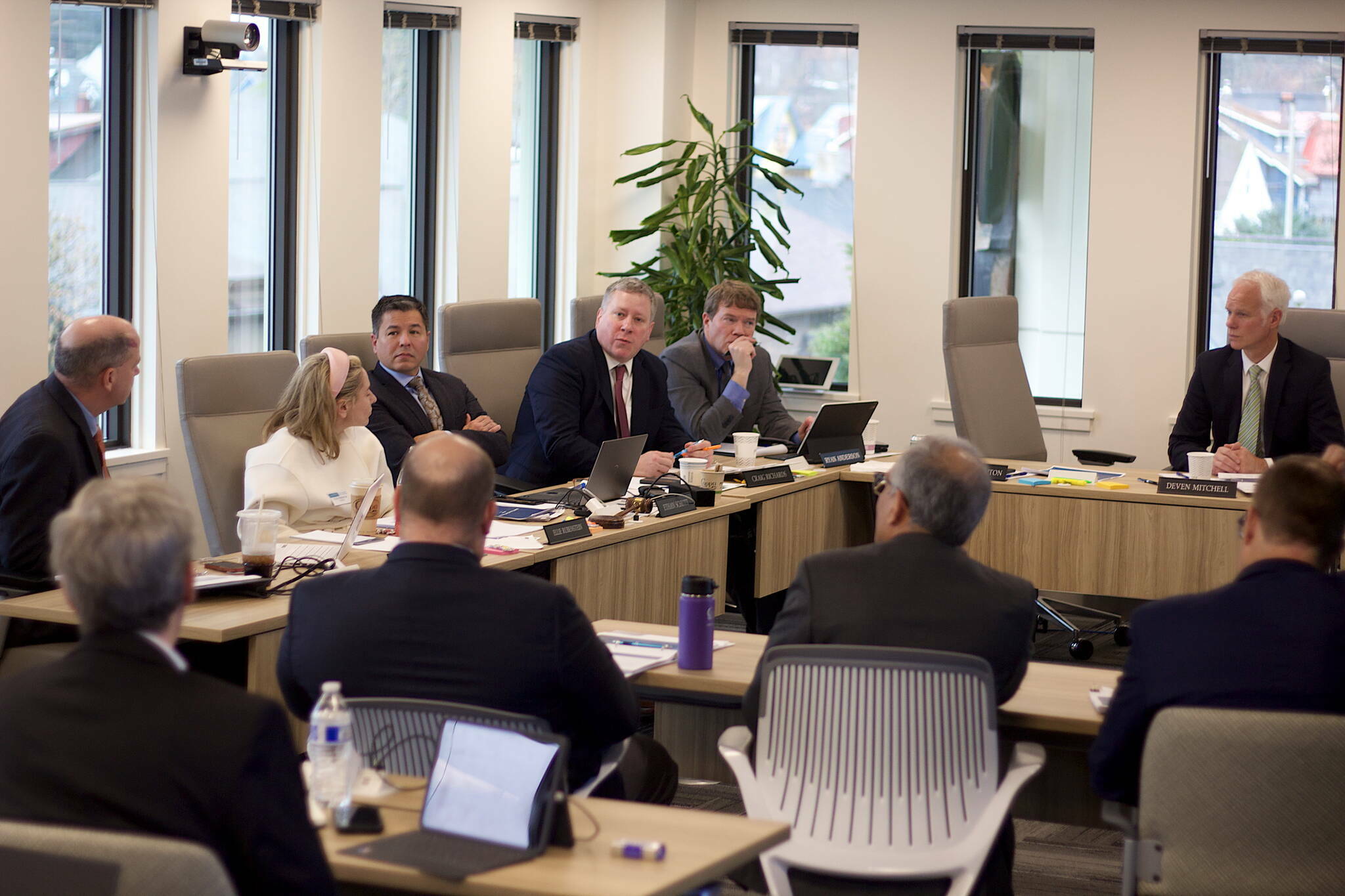It’s been two months since Alaska Landmine published leaked emails that suggest Gabrielle Rubenstein, vice-chair of the Permanent Fund Board of Trustees, may have violated the Alaska Executive Branch Ethics Act. During a legislative hearing on Monday, CEO Deven Mitchell referred to controversy it’s created as “noise.”
“I don’t believe that the staff has allowed” it to “impact their professionalism and dedication to duty to the fund and the Corporation,” he said.
This isn’t at all about his perspective. He’s missing the fact that even the appearance of a conflict of interest can undermine public trust in government institutions and the people who run them.
Unfortunately, Mitchell isn’t the only one who doesn’t seem to get that.
The leaked emails relate to the board’s decision to increase investments in the private equity market. They indicate that Rubenstein may have tried to direct some of those to businesses in which she had personal connections.
Marcus Frampton, the fund’s chief investment officer, recognized the appearance looks bad.
“I would put it out there that a reasonable person looking at the facts here might question whether she has some conflicts that are clouding the independence of her positions here,” he wrote in one the emails that was leaked.
A question posed by Rep. Ben Carpenter, R-Nikiski, gave Mitchell another clue. Based on a reading of the messages “Could the general public put two and two together” and, “whether it’s accurate or not,” conclude there is a conflict of interest that needs to be resolved?
To be fair to Mitchell, the board also has responsibility for determining if the conflict is real. But the only concrete action they’ve taken was hiring an independent firm to investigate the leak. That’s not a good optic either.
They should be able to get guidance from Attorney General Treg Taylor. But he’s possibly in violation of the ethics act too. Despite the fact his wife had previously published an article stating they intended to accept public funds for their children to attend a private school, he’s involved in challenging a court ruling that prohibits doing just that.
And he’s not the best person to question the ethics of a board member appointed by Gov. Mike Dunleavy. As I wrote a few months ago, either a real conflict of interest or the appearance of one didn’t stop him from negotiating an agreement that benefited Dunleavy personally.
Dunleavy had another conflict involving his personal finances. Last year, he dismissed members of the State Officers Compensation Commission after the Legislature rejected the raise they recommended for him. He wound up getting it after the new members he appointed signed off on a significant pay increase for legislators too.
That may have been legal, but it had the appearance of a pasture covered in cow dung.
I’ve also argued that Taylor’s predecessor improperly issued an opinion that the petition to recall Dunleavy was legally inadequate. It was challenged in court and the state Supreme Court ultimately decided in favor of the petitioners.
There’s another side to that story that’s relevant here. Dunleavy’s allies called on Chief Justice Joel Bolger to recuse himself. He refused. But before the case was heard, he invited attorneys to make their arguments for why he should step aside.
“All judges, particularly the chief justice, must not only be impartial, they must also appear to be impartial,” the vice chair of the Alaska Republican Party wrote an Anchorage Daily News opinion. “The Code of Judicial Conduct provides that when a judge’s impartiality ‘might reasonably be questioned,’ that judge ‘shall disqualify himself.’”
With a desire to “maintain the public’s faith and confidence in the justice system,” Bolger did just that. After acknowledging making public statements on “conduct that forms part of the basis for the recall petition” he agreed it was “a case where a reasonable person might question” his final judgment.
Mitchell and the board have a choice. They can recognize that based on the evidence, reasonable Alaskans believe Rubenstein may have violated the ethics act. And consider the possibility that she’s compromised her ability to effectively serve on the board even if the evidence is insufficient to establish a conflict of interest. Or they can contribute to the declining public trust in our government’s institutions by continuing to block out the noise.
• Rich Moniak is a Juneau resident and retired civil engineer with more than 25 years of experience working in the public sector. Columns, My Turns and Letters to the Editor represent the view of the author, not the view of the Juneau Empire. Have something to say? Here’s how to submit a My Turn or letter.

